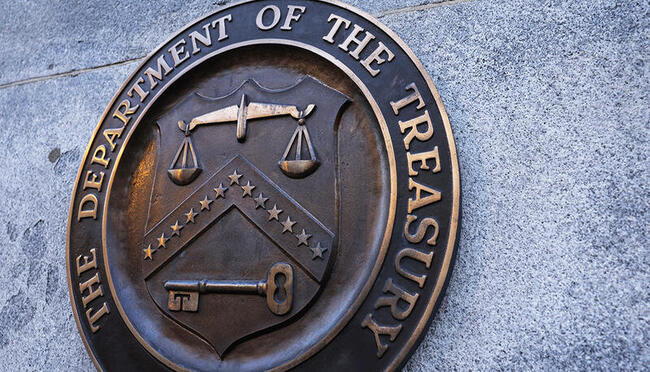Highlights:
- The US Treasury has extended the GENIUS Act review, with feedback due by October 20.
- The US Treasury is seeking feedback on tax rules, foreign issuers, and the oversight balance for stablecoins.
- The Senate is to vote on the Responsible Financial Innovation Act as stablecoin laws advance toward a 2026 rollout.
The US Department of the Treasury has opened a second comment period for the implementation of the Guiding and Establishing National Innovation for US Stablecoins (GENIUS) Act. The department announced on Thursday that it would provide a new 31-day window for public input. The deadline for submitting comments will fall on October 20.
The US Treasury just kicked off another round of public comments on the GENIUS Act, which is all about regulating stablecoin payments 🇺🇸💸. Even though they didn’t have to ask for feedback, they’re opening the floor for 31 days to hear what folks think—especially around shady… pic.twitter.com/akuhQSIvwq
— Seven Crypto 🐋 (@SevenWinse) September 19, 2025
The Treasury first opened the comment process in August, setting an initial deadline of October 17. The latest extension allows additional feedback from stakeholders before officials move forward with drafting rules. The agency emphasized that it seeks information to help refine the implementation of the law.
President Donald Trump signed the GENIUS Act into law on July 18, during a ceremony attended by crypto industry executives from firms including Coinbase, Gemini, Circle, and Kraken. The legislation marked the first crypto-specific law enacted in the United States. According to the Treasury, the law will take effect 18 months after signing, or 120 days after the department and the Federal Reserve finalize the rules. Based on that timeline, implementation is expected no earlier than late 2026.
Treasury officials defined the new window as a chance whereby the public can formulate stablecoin regulations. The agency emphasized its efforts to balance innovation, consumer protection, and financial stability. Authorities also pointed at the need to deal with possible illicit finance risks.
US Treasury Extends GENIUS Act Review on Stablecoin Rules
In its recent announcement, the Treasury sought the contribution of a broad spectrum of stakeholders, including industry associations, scholars, and consumer groups. The agency requested detailed information on how stablecoin rules should apply in practice. It asked for data that could guide rulemaking across several complex issues.
Among the questions raised are whether payment stablecoins should have specific tax treatment and how the Internal Revenue Service might interpret such provisions. Treasury also asked whether foreign issuers could offer stablecoins in the United States under the GENIUS framework. Officials highlighted that clarity on marketing rules and consumer disclosures may also be necessary.
Another key issue involves balancing oversight between federal and state authorities. The department indicated that comments could help determine the appropriate application of the Bank Secrecy Act, anti-money laundering rules, and sanctions laws. Treasury stressed that it aims to design a framework that deters misuse of digital assets while supporting legitimate adoption.
The agency has already collected input on illicit finance concerns during a separate request in August. However, the latest comment period expands the scope to include structural and operational questions about stablecoin markets. Officials said they intend to build on this feedback as they prepare formal proposals.
Next Steps in Congress and Market Outlook
Lawmakers in Congress are also moving forward on related digital asset measures. The Senate Banking Committee is supposed to vote on the Responsible Financial Innovation Act before the end of September. Senator Cynthia Lummis, who is a major advocate of the bill, testified that the committee will proceed to pass the bill before the year-end.
The proposal would outline how US agencies should oversee digital assets. It is designed to define agency roles in supervision and enforcement. The bill was debated this week in a set of roundtable meetings with crypto executives by lawmakers.
I want to thank my colleagues across the aisle for their constructive digital asset market structure framework.
Meaningful legislation takes intentional collaboration & discussion. This is a strong start, and I look forward to working together to secure America’s financial future https://t.co/QmK6mSvKCc— Senator Cynthia Lummis (@SenLummis) September 9, 2025
Whereas the GENIUS Act itself has been signed into law, it will take time before the rules of its implementation are fully in place. Treasury officials estimate the process could extend into 2026. Market participants will watch closely as the department and Congress move ahead with shaping the US approach to stablecoin payments.
Best Crypto Exchange
- Over 90 top cryptos to trade
- Regulated by top-tier entities
- User-friendly trading app
- 30+ million users
eToro is a multi-asset investment platform. The value of your investments may go up or down. Your capital is at risk. Don’t invest unless you’re prepared to lose all the money you invest. This is a high-risk investment, and you should not expect to be protected if something goes wrong.






